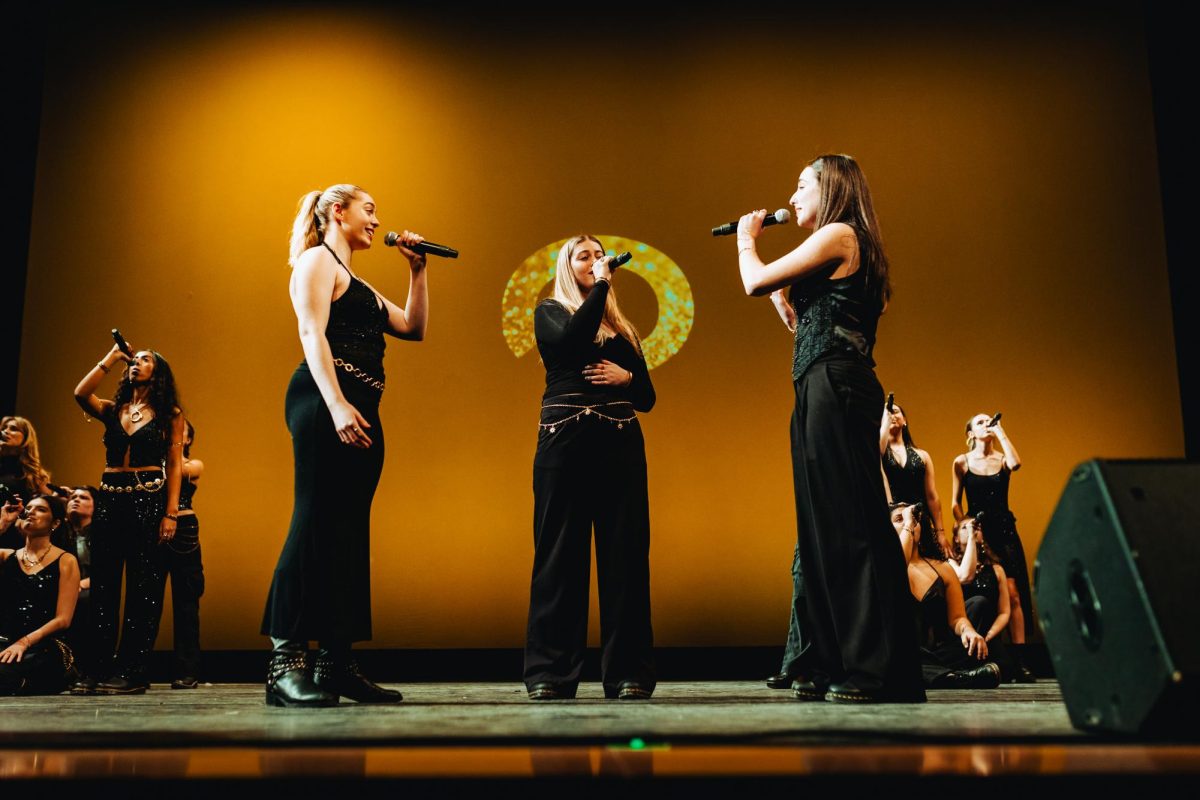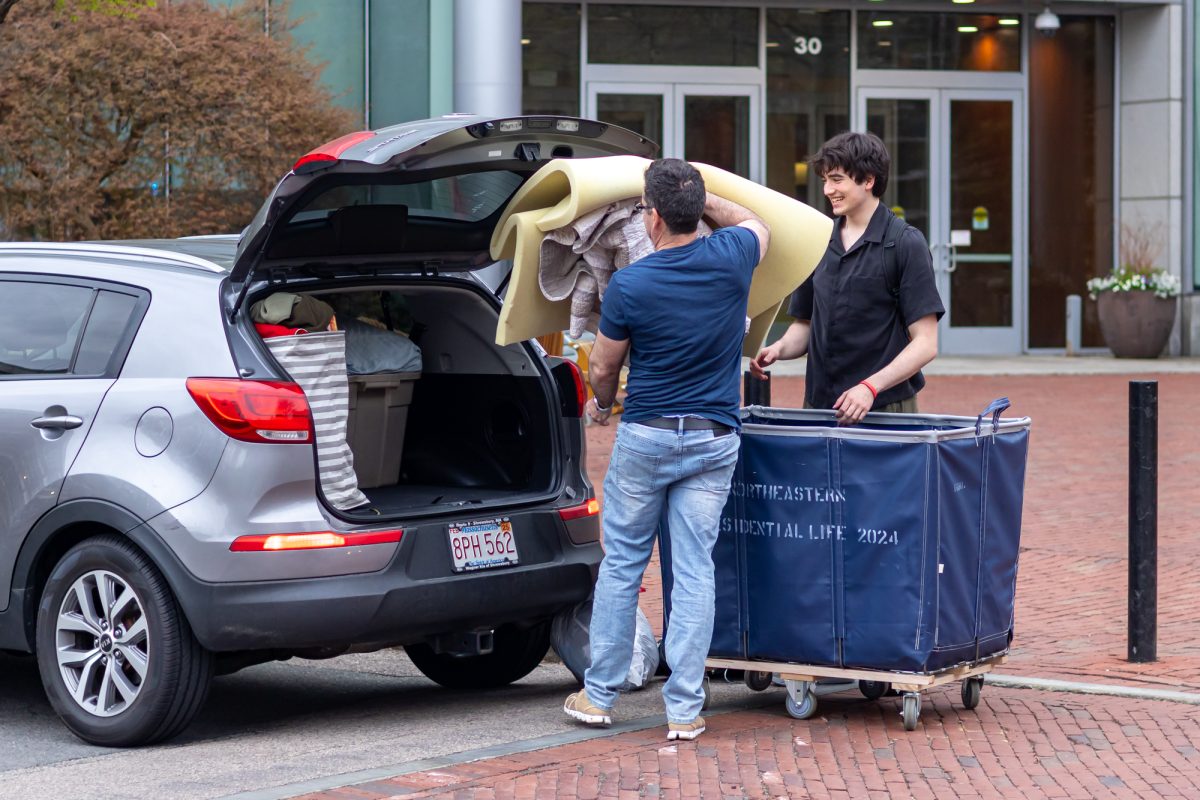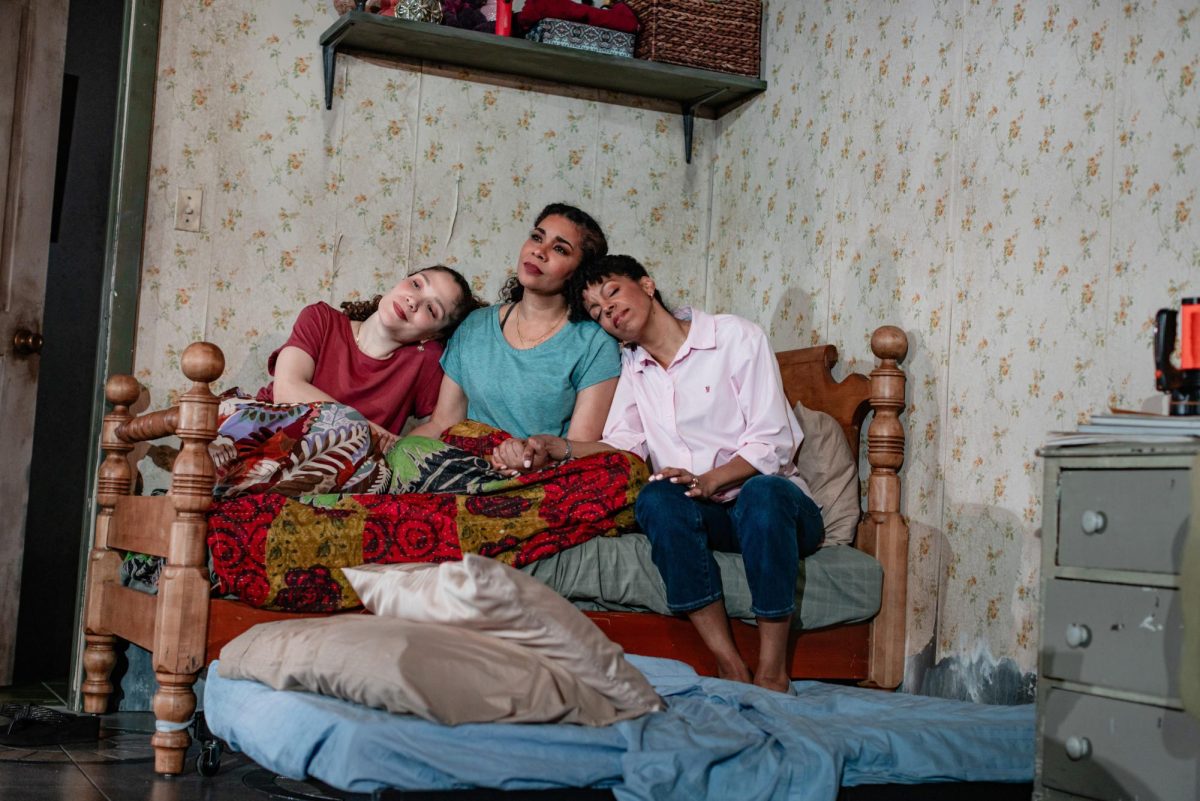The Huntington Theatre Company opened its production of Tom Stoppard’s “Leopoldstadt” Sept. 12, produced in association with Washington D.C.’s Shakespeare Theatre Company. The 23-person cast portrayed a Viennese family living through the 19th and 20th centuries — a time when the Holocaust irreversibly altered the future of a once-thriving family, rich with both Jewish and Christian culture.
Its creation was inspired by Stoppard’s own family history. Stoppard, born Tomáš Sträussler, changed his name after his family fled to England from Nazi-occupied Czechoslovakia. The play parallels Stoppard’s own journey with his Jewish culture, which he said he did not fully appreciate until later in life. It is also separated into four different time periods, which function as acts.
The play is named after the historically Jewish-Austrian town of the same name but takes place in the country’s capital, Vienna. “Leopoldstadt” follows the wealthy Merz and Jakobovicz families, who try their best to assimilate into Viennese society to have more economic and professional opportunities.
Almost all the actors play multiple characters. The original 2020 production in London’s West End involved almost 40 actors, so The Huntington Theatre employed double roles for the American production. Its production of the play included 15 adults, eight children and multiple understudies.
Samuel Adams, who plays both Fritz, an antisemitic cavalry officer, and Percy Chamberlain, a British journalist, put it best: “Jewish people in Vienna is the greatest unrequited love affair in history. That’s a good way of putting this whole play in the nutshell.”
“What’s so powerful about this play is there’s another character that’s not quite named — the political landscape of Austria,” said Anna Slate, who plays Jana in the 1899-set section and Sally in the 1924-set section.
“Leopoldstadt” shows how antisemitism bred by Hitler and the Nazis have affected the family. By dividing the play into four acts, with each covering a different year, audience members can see the impact of the Nazi Party’s rule on the multi-religious household.
“You see them go from this abundant family full of joy, riches and food, and then you see them dwindle down into that final three,” said Anna Theoni DiGiovanni, who plays both Hanna and Hermine, a mother and her daughter.
Throughout the play, there are several emotionally intense scenes. As the play goes on, the families experience increasing antisemitism. This culminates in one scene where a Nazi officer bursts into the family’s home and orders all the members to pack up to leave for concentration camps. As a result, some members discuss leaving the country, but not everyone wants to. The impact of the Nazi invasions leaves emotional scars on the family, especially Nathan, a descendant of the Jakobovicz family. He survives the Holocaust but is left with PTSD, resulting in emotional detachment.
Although these parts of the play were mature and tense, it didn’t take away from the happier and lighter moments at the beginning of the play — rather, it added to them, as these scenes showed the multifaceted impacts of the Holocaust on the family. Along with the characters, the audience, too, experienced the emotional ups and downs.
It was an emotionally challenging play to act in, DiGiovanni said. The play deals with difficult themes of war, loss and genocide. Although the play’s plot and characters were fictitious, its historical basis is real.
“Doing it many times in a row takes a lot of stamina and self-care when you’re off the stage,” Slate said. With the show running two hours and 20 minutes, without an intermission, Adams feels similarly.
“It is not an easy story to tell. You learn who these people are and they become people you fall in love with,” he said. “To see what happens to them night after night is heartbreaking.”
After each scene, the number of characters dwindles. The play’s mood shifts from a copacetic family celebrating both Christmas and Hanukkah to one that is hair-raising, ending with one character reading a list of all the characters who died in concentration camps.
Despite the play’s emotional toll, the actors were grateful for the support system that the Huntington Theatre Company cast and crew gave them.
“Every day, people bring baked goods, candies and sugar snacks to find some joy as we tackle this story every night,” Adams said.
Director Carey Perloff played an integral role in shaping the production, managing to “pull this play that has so many moving parts with such dexterity,” Adams said.
Perloff helped DiGiovanni fine-tune the nuances between her two characters. “They are both driven but get what they want in very different ways, and I think I am a lot more like [Hermine] as a person,” DiGiovanni said. With the help of costuming and Perloff’s direction, playing two characters became easier over time, and she eventually mastered her roles.
Perloff has a personal connection with the Merz-Jakobovicz family — her mother was a refugee in Vienna after fleeing Nazi rule in 1938. “[Perloff] came with a wealth of information,” Slate said. “She knows every nook and cranny of that time period. It was incredible to hear her perspective.”
Behind the scenes, the crew helped all the actors with double roles and minor details. In one of her scenes playing Sally, Slate is reading “Grimm’s Fairy Tales.” Slate said that every night, the crew, who she referred to as the show’s “quiet heroes,” would put the bookmark in the correct place for her.
One of DiGiovanni’s most memorable moments was when she, alongside her castmates, met Stoppard over Zoom. In the meeting, Stoppard told the cast to “remember joy.”
Before each show, DiGiovanni takes a few minutes to remember joy and said she hopes the audience will too.
“It’s a really beautiful play about what’s remembered and what’s forgotten,” she said. “I hope they walk away with more curiosity towards those around them and the stories they carry.”
“Leopoldstadt” will run at the Huntington Theatre until Oct. 13.











